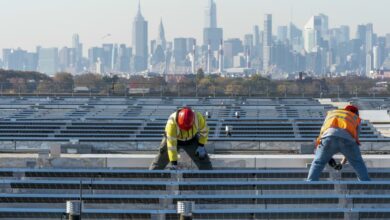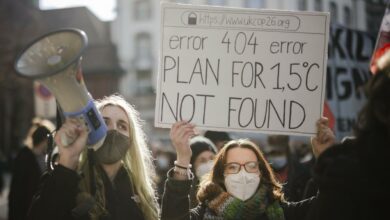Existing targets for biofuels and other forms of bioenergy are based on flawed carbon accounting and should be revised downwards, a draft report by a panel of 19 top European scientists showed.
"It is widely assumed that bioenergy is inherently carbon-neutral. However, this assumption is flawed," said the Scientific Committee of the European Environment Agency, the European Union's environment watchdog.
"The potential consequences of this bioenergy accounting error are immense," said the draft opinion seen by Reuters.
The report is intended to guide EU policymaking on bioenergy, but its findings apply to policies implemented by other governments around the world, the scientists said.
If the findings are confirmed and heeded by policymakers, it would undermine the case in favor of using biofuels and could lead to a wholesale U-turn in existing bioenergy policy.
The 19-member panel has no direct say on EU energy policy, but its opinion is well respected, and the draft report comes during a tense EU debate over calculating the indirect climate impact biofuels create by diverting crops into fuel tanks.
The European Commission has agreed to delay by up to seven years rules that would penalize individual biofuels for their indirect emissions, saying the scientific uncertainty surrounding the issue is too great.
Ten agencies, including the World Bank and World Food Programme, recently called on governments to scrap policies to support biofuels, because they force up food prices.
Biofuels accounted for about 20 percent of sugar cane in 2007-2009 and 9 percent of oilseeds and coarse grains, according to that study.
But the report by the EEA's scientific committee goes one step further, saying that policymakers made a basic mathematical error at the start and credited both liquid and solid fuels with more carbon savings than they merit.
The basic assumption with bioenergy – whether bioethanol used in cars or wood chips burned in power stations – is that it emits only as much carbon when burned as the plants absorbed when growing.
If you use them as a fuel, their net impact on the carbon balance of the climate is supposed to be zero, except for emissions from farming and processing the energy crop.
Baseline error
But the scientific committee said that the basic theory omitted to make a comparison with the business-as-usual scenario of plant growth.
"Plants do absorb carbon, but this thinking makes a 'baseline' error because it fails to recognize that if bioenergy were not produced, land would typically grow plants anyway, and those plants would absorb carbon," it said.
The only true carbon savings are those made above and beyond the natural level of carbon sequestration in nature or crop cultivation. In other words, what matters is additional plant growth.
The panel called on the EU to revise its bioenergy laws to make intelligent use of the best-performing biofuels.
"Legislation that encourages substitution of fossil fuels by bioenergy, irrespective of the biomass source, may even cause an increase in carbon emissions, accelerating global warming," it said.
The EU has a target to increase the share of renewables in final energy use to 20 percent by 2020, and current forecasts suggest that energy from trees and other vegetation will account for 60 percent of all renewable energy by that date.
A separate EU target seeks to raise the use of biofuels in road transport to about 10 percent by the end of this decade.
The European Environmental Bureau (EEB), a federation of more than 140 environment groups, said the opinion confirmed the findings of its 2010 report, "Bioenergy: a Carbon Accounting Time Bomb".
"The industry keeps telling us that the science on biofuels is too uncertain to change the policy, but both these reports show that the only thing that is uncertain is whether EU biofuels policy delivers any carbon savings at all," said EEB policy director Pieter Depous.
Members of the scientific committee contacted by Reuters declined to comment on the contents of the report, which is due to be formally adopted on 5 October, but stressed that it was a draft and could still change.
One expert with knowledge of its contents, speaking on condition of anonymity, said initial estimates of the climate benefits of bioenergy were far too optimistic.
"The problem was that when these targets were created, people did not go into these details. It's later on that all these details came in," he said.
"I think there's still a role for bioenergy, but maybe a little bit less positive than it is now."




